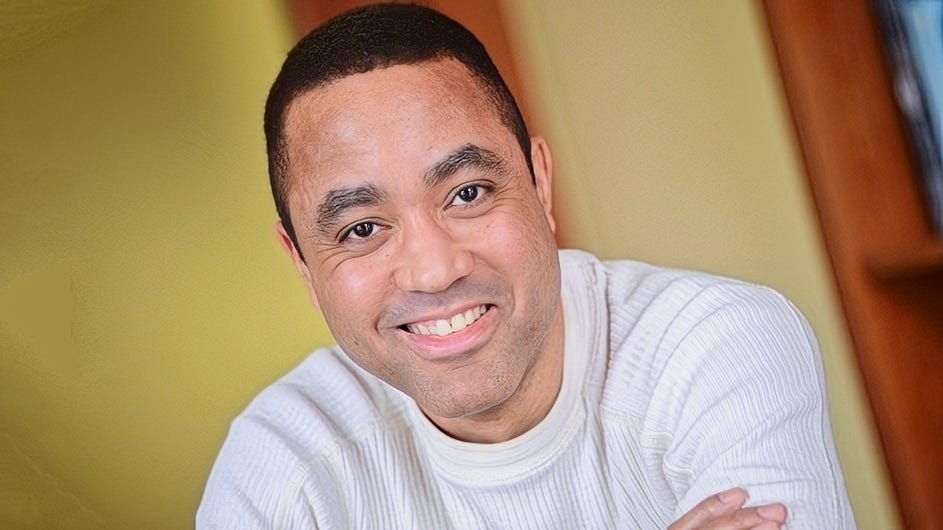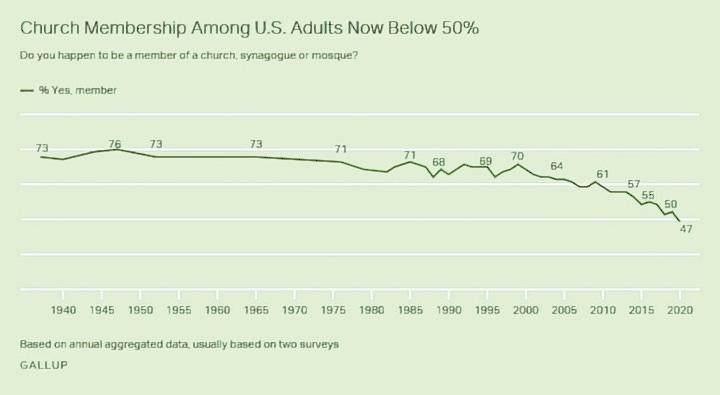The West Needs Another Liberal Religion
Can the opening be filled with an import from the East?
When I asked A.I., my research assistant, for a list of the world’s leading liberal religions, A.I. supplied me with a list of religions that often take politically liberal positions. That’s an often-made mistake, so I modified my request to clarify I was looking for the religions that are most liberal, not necessarily in their political positions but in their adherence to dogma.
Now A.I. understood and returned this answer:
Unitarian Universalism
Unitarian Universalism is often cited as one of the most liberal religious movements. It:
Does not adhere to any specific creed or dogma
Draws inspiration from various religious and philosophical traditions
Emphasizes individual spiritual exploration rather than fixed doctrine
Welcomes people of diverse beliefs, including atheists and agnostics
Reform Judaism
Reform Judaism tends to be more liberal compared to Orthodox Judaism:
Interprets Jewish law and tradition in light of modern values
More open to adapting practices and beliefs to contemporary life
Generally more accepting of interfaith marriages and LGBTQ+ inclusion
Liberal Quakerism
Some branches of Quakerism, particularly Liberal Quakerism:
Focus more on individual spiritual experience than rigid doctrine
Often do not require belief in specific religious concepts
Emphasize social justice and pacifism
Progressive Christianity
Various progressive Christian denominations and movements are more liberal in their approach:
United Church of Christ
Episcopal Church (in some regions)
Some Methodist and Lutheran branches
These tend to:
Interpret scripture more metaphorically than literally
Be more open to scientific perspectives
Often support LGBTQ+ inclusion and women's ordination
Buddhism
While practices vary, many forms of Buddhism, especially in the West, are relatively liberal:
Focus on personal spiritual practice rather than adherence to dogma
Often compatible with scientific worldviews
Generally do not require belief in a personal god
It's important to note that within each religion, there is often a spectrum of beliefs and practices, ranging from very conservative to very liberal. The level of liberalism can also vary significantly by region and individual congregation.
You would think A.I. would have read my UU and Me post and scratched Unitarian Universalism from the list, but what do you expect from a research assistant whose salary is just $20 a month? On the other hand, I’ve instructed A.I. that I’m a Vajrayana Buddhist, so that may be why Buddhism is included in the list and not some other Eastern religions like Hinduism, Taoism, and Confucianism.
Let’s go through A.I.’s list.
Unitarian Universalism. A.I. is correct historically, and some UU congregations that avoid creed and dogma still exist. However, a strict doctrine of race-based politics now dominates the national Unitarian Universalist Association (UUA). In June, the UUA repealed its seven principles, including three that called for ‘“acceptance of one another and encouragement to spiritual growth in our congregations,” “a free and responsible search for truth and meaning,” and “the right of conscience and the use of the democratic process within our congregations and in society at large.”
Reform Judaism. If today’s Reform Judaism had existed in the 1950s and a Reform temple was available in my neighborhood rather than the old-fashioned Conservative synagogue my family attended, I might never have left that faith. As Vajrayana Buddhist teachers sometimes say, whatever path you’re on is the right one, so I have no regrets. For those willing to accept a liberal version of an Abrahamic faith, Reform Judaism might be worth considering.
Liberal Quakerism. I live near the historic Goose Creek Friends Meeting and have attended a few services there and at other Quaker meetings. The congregants are indeed warm and welcoming. Each service is “an unprogrammed Meeting, which means that our period of worship is neither arranged according to any plan or ritual, nor led by a designated minister. At the appointed hour, we gather in silence, in an attitude Friends have long called ‘expectant waiting,’ in the faith that the still, small voice we can hear in these circumstances may well be that of God in us.” What surprised me about the meetings was how often that “still, small voice” spoken by a congregant was a Biblical quotation.
Progressive Christianity. The United Church of Christ is close to what Unitarian Universalism used to be, except for its emphasis on Christianity. Some Episcopal, Methodist, and Lutheran churches are indeed open to metaphorical interpretations of scriptures and more inclusive views of ministry. Still, those congregations may be outliers within their respective denominational structures.
Buddhism. Unsurprisingly, I generally agree with what A.I. wrote and consider Buddhism an excellent option for Westerners who want a liberal faith. I will object to one of A.I.’s phrases, though. I wouldn’t say that Buddhism rejects the belief in a personal god. What’s incompatible with Buddhism is the belief in a creator god or one that controls destiny.
A new Western secular religion?
The problem bringing about the destruction of Unitarian Universalism as anything but an advocacy organization and a support group for political progressives also exists to some extent in Reform Judaism, Liberal Quakerism, and Progressive Christianity, but so far has not dominated those faiths.
Linguist and author John McWhorter and other theorists have identified the doctrine of race-based politics as a new secular religion. McWhorter’s book Woke Racism: How a New Religion Has Betrayed Black America makes the case persuasively.
Here are some reasons why many see this “anti-racism” as a religion:
Anti-racism ideology has taken on a zealous, dogmatic quality that stifles debate.
There are concepts like original sin (white privilege) that people are told they can never fully atone for.
Dissent or criticism (heresy) is met with harsh social sanctions.
There's an emphasis on faith-like belief over evidence or debate on some tenets.
Anti-racism has become a core part of identity and worldview for many adherents, who argue that other issues can’t be resolved until racism is eliminated.
Looking to the East
If I knew more about the types of Hinduism, Taoism, and Confucianism available in the United States and elsewhere in the West, I’d say more about them. Those interested in Eastern liberal religions may want to explore them, and I’m sure I’m missing others. Buddhism is the Eastern religion I’ve practiced for about four decades in various forms.
January 6, 2016, is a significant date in my spiritual biography. That’s when I put my faith in the teachings of Lama Surya Das and became a Vajrayana Buddhist. Two days later, I took Refuge and Bodhisattva Vows with Lama Surya, who gave me the Tibetan dharma name Urgyen Jigme (Fearless Lotus).
Forever grateful to Lama Surya for introducing me to Vajrayana, I remain a loyal student of his. He offers a free one-hour Meditation Town Hall on Sunday mornings at 11 a.m. East Coast U.S. time. For most beginners, though, I’d recommend another one of my teachers, Yongey Mingyur Rinpoche, and his Joy of Living program.
A third option for newcomers to Vajrayana is Anam Thubten. He offers meditation and a dharma talk live over Zoom on two Sundays a month starting at 1 p.m. East Coast U.S. time. You can find his schedule here. Note that his next public teaching is this coming Sunday, August 25. Here’s the Zoom link.
I recommended two books on Vajrayana for beginners and one for more advanced students in this post:
Andrew Holecek is another teacher with a strong Vajrayana background who offers programs on a wide range of interests. His website is here. In his Edge of Mind podcasts, he interviews experts on various forms of spiritual wisdom.
If Vajrayana Buddhism is too esoteric a starting point for you and you’d like to start by learning mindfulness as a religious practice, consider teachers in the tradition of the venerable Vietnamese master Thich Nhat Hanh (1926-2022), my first Buddhist teacher. The worldwide network of monasteries and teaching centers he founded is headquartered in Plum Village in France. Its website would be a starting point to learn more.
Some numbers
We’ve seen graphs like this one before. Membership in churches, synagogues, and mosques has dropped from around 70% of the U.S. public in 2000 to less than 50% in 2020. At the same time, we’ve become more socially isolated and polarized.
Liberal Western religions are not growing as more traditional ones decline in membership. Unitarian Universalism (no longer genuinely liberal) fell from a modest 148,000 members in 2018 to 130,000 members in 2024. Membership in the United Church of Christ has declined, with about 802,000 members as of 2019.
About a third of U.S. Jews identify as Reform, making it the largest Jewish denomination in the U.S., with about 1.5 million members. Buddhism is growing or holding steady, with an estimated 1.2 million adherents.
Although numbers like these can’t be taken as precise, they give us a rough idea of what’s happening. The message is something like this:
While we’re increasingly lonely and polarized, we’re not getting the help we need from the established Western religions.
With my don’t-know-mind, I can’t say that Buddhism and other Eastern religions will give us what we need, but my bodhicitta encourages me to write these posts and spread the dharma so we can better understand how interconnected we are and reduce our suffering.
From the Pure Land is read by subscribers in 25 US states and nine countries.
If you have found this blog post helpful, whatever your religious path, please share it with your friends.
All subscribers, free or paid, get the same From the Pure Land content. Paying for your subscription is a way of supporting my work. From now until the U.S. Labor Day on September 2, paid subscriptions are discounted by 40% for the first year. So they’re $3 a month or $30 a year. Click here or on the button below to ensure you get the reduced rate. After a year, if you don’t end your subscription, it will renew at the $5 or $50 rate. However, you will only get the reduced rate for your first year if you subscribe by September 2.
Whatever you decide, you’re supporting my work simply by reading it.
The musical bonus is an example of interconnection and interbeing.








I think it is not only neo-racism that has become a dogma in UUISM but also faith in a "gendered soul" replacing science based reality.
Have you read (Rev.) William R. Murry's "Becoming More Fully Human: Religious Humanism as a Way of Life" ? A website says " 'Becoming More Fully Human' presents Humanism as a way of life rather than a philosophical bent." I think it presents the possibility of a genuinely liberal religious/spiritual path for the future. Some diehard Unitarians have come together in the new North American Unitarian Association, as you know, and i'm one of 'em, but i think Humanism offers a chance for us to create a vibrant faith for the coming era. Time will tell.